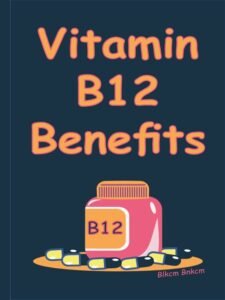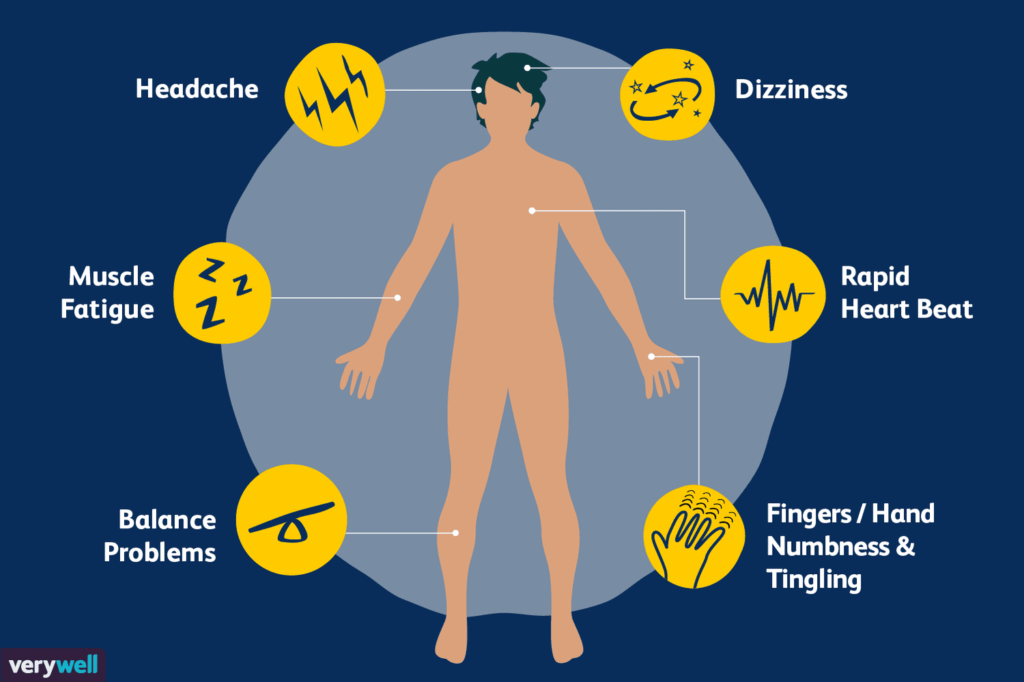Introduction Wellhealthorganic Vitamin B12
Vitamin B12, a vital nutrient for overall health, plays a crucial role in various bodily functions. It is essential for nerve function, red blood cell production, and DNA synthesis. At Wellhealthorganic.com, vitamin B12 is highlighted as a key component in maintaining optimal health. This guide explores the benefits of vitamin B12, its sources, and how to incorporate it into your diet.
What is Vitamin B12?
Vitamin B12, also known as cobalamin, is a water-soluble vitamin found in various animal-based foods. It is essential for several bodily processes, including:
- Nerve Health: Vitamin B12 helps maintain the health of nerve cells and supports proper nerve function.
- Red Blood Cell Production: It is crucial for the formation of red blood cells, preventing anemia.
- DNA Synthesis: B12 is involved in DNA synthesis, which is essential for cell division and growth.
- Energy Production: It plays a role in energy metabolism, helping convert food into usable energy.
Health Benefits of Vitamin B12
1. Enhances Nervous System Health
Vitamin B12 supports the health of the nervous system by:
- Maintaining Myelin: It helps produce myelin, a protective sheath around nerves, which is crucial for efficient nerve signal transmission.
- Preventing Neuropathy: Adequate B12 levels can help prevent neuropathy, a condition characterized by nerve damage and pain.
2. Supports Red Blood Cell Production
Vitamin B12 is essential for producing healthy red blood cells, which:
- Prevent Anemia: B12 deficiency can lead to megaloblastic anemia, a condition where red blood cells are abnormally large and cannot transport oxygen efficiently.
- Boosts Energy Levels: By preventing anemia, B12 helps maintain energy levels and reduces fatigue.
3. Aids in DNA Synthesis
B12 is crucial for DNA synthesis, which:
- Promotes Cell Growth: Proper DNA replication is essential for cell growth and repair.
- Supports Healthy Cell Division: It helps ensure that cells divide properly, which is important for overall health.
4. Enhances Cognitive Function
Vitamin B12 contributes to cognitive health by:
- Improving Memory: Adequate B12 levels can support cognitive function and memory.
- Reducing Risk of Cognitive Decline: B12 deficiency has been linked to an increased risk of cognitive decline and dementia.
5. Supports Cardiovascular Health
B12 plays a role in cardiovascular health by:
- Reducing Homocysteine Levels: It helps lower homocysteine levels in the blood, an amino acid associated with a higher risk of heart disease.
- Supporting Healthy Blood Vessels: B12 aids in maintaining healthy blood vessels and overall cardiovascular function.
Sources of Vitamin B12
Vitamin B12 is found naturally in animal-based foods, including:
- Meat: Beef, pork, and lamb are rich sources of B12.
- Poultry: Chicken and turkey contain significant amounts of B12.
- Fish: Fish such as salmon, trout, and tuna are excellent sources.
- Dairy Products: Milk, cheese, and yogurt provide B12.
- Eggs: Eggs are another source of vitamin B12.
For those following a vegetarian or vegan diet, B12 can be obtained from fortified foods and supplements:
- Fortified Foods: Some plant-based milk, breakfast cereals, and nutritional yeast are fortified with B12.
- Supplements: Vitamin B12 supplements are available in various forms, including tablets, capsules, and sublingual (under-the-tongue) tablets.
Recommended Daily Intake
The recommended daily intake of vitamin B12 varies by age and life stage:
- Adults: The recommended daily allowance (RDA) for adults is 2.4 micrograms (mcg).
- Pregnant Women: Pregnant women should aim for 2.6 mcg per day.
- Breastfeeding Women: The recommended intake for breastfeeding women is 2.8 mcg per day.
Signs of Vitamin B12 Deficiency
Vitamin B12 deficiency can lead to several health issues, including:
- Fatigue and Weakness: Low B12 levels can cause tiredness and weakness.
- Pale Skin: Deficiency may result in pale or jaundiced skin.
- Numbness and Tingling: A lack of B12 can lead to nerve-related symptoms such as numbness and tingling in the hands and feet.
- Difficulty Walking: Deficiency can affect balance and coordination.
- Mental Fog: B12 deficiency may contribute to memory problems and mental fog.
How to Boost Your Vitamin B12 Levels
To maintain optimal B12 levels:
- Eat a Balanced Diet: Include B12-rich foods in your diet, such as meat, dairy, and fish.
- Consider Fortified Foods: For vegetarians and vegans, choose fortified foods and consider supplements.
- Regular Testing: Get regular blood tests to monitor your B12 levels, especially if you are at risk of deficiency.
Importance of Vitamin B12
Vitamin B12 is crucial for several bodily functions, including:
1. Energy Production: It helps convert food into energy, reducing fatigue.
2. Nerve Health: Supports the maintenance of the nervous system, preventing nerve damage.
3. Red Blood Cell Formation: Essential for the production of healthy red blood cells, preventing anemia.
Benefits of WellHealthOrganic Vitamin B12
 WellHealthOrganic Vitamin B12 supplements offer several benefits:
WellHealthOrganic Vitamin B12 supplements offer several benefits:
– Improved Energy Levels: Regular intake can combat tiredness and boost energy.
– Enhanced Brain Function: It may improve memory and reduce the risk of cognitive decline.
– Better Mood Regulation: B12 supports serotonin production, which can enhance mood and reduce symptoms of depression.
Who Needs Vitamin B12?
Certain groups are more at risk of B12 deficiency:
– Vegans and Vegetarians: B12 is mainly found in animal products, making supplements crucial for those on plant-based diets.
– Older Adults: Absorption decreases with age, increasing the risk of deficiency.
– Individuals with Digestive Disorders: Conditions like Crohn’s disease or celiac disease can hinder absorption.
Signs of Vitamin B12 Deficiency

Common symptoms of deficiency include:
– Fatigue and weakness
– Pale or jaundiced skin
– Nerve problems, like tingling or numbness
– Difficulty thinking and memory loss
| Category | Details |
|---|---|
| Product Name | Wellhealthorganic Vitamin B12 |
| Form | Tablets, Capsules, Sublingual Drops |
| Active Ingredient | Methylcobalamin |
| Dosage | 1000 mcg per tablet/capsule/drop |
| Recommended Use | 1 tablet/capsule/drop daily or as directed by a healthcare provider |
| Bioavailability | High, due to the use of Methylcobalamin |
| Suitable For | Vegetarians, Vegans, Older Adults, Athletes |
| Free From | Gluten, Soy, Dairy, Artificial Colors, and Preservatives |
| Certifications | GMP Certified, Third-Party Tested |
| Packaging | Recyclable, BPA-Free Containers |
| Storage Instructions | Store in a cool, dry place, away from direct sunlight |
| Shelf Life | 2 years from the date of manufacture |
| Health Benefits | Energy Boost, Improved Mental Clarity, Red Blood Cell Formation, Neurological Health |
| Potential Side Effects | Rare; may include dizziness, headache, nausea |
| Price Range | $15 – $30 per bottle (60 tablets/capsules/drops) |
| Availability | Online and in select health stores |
| Customer Rating | 4.8/5 based on customer reviews |
| Company Mission | Promote holistic health through high-quality, natural supplements |
| Customer Support | 24/7 support via email and phone |
What is Vitamin B12?

Vitamin B12, also known as cobalamin, is a water-soluble vitamin that plays a pivotal role in the functioning of the brain and nervous system. It’s also essential for the formation of red blood cells and DNA synthesis. Chemically, it contains the mineral cobalt and can be found in several forms, including cyanocobalamin and methylcobalamin.
Benefits of Vitamin B12

Energy Production
One of the primary benefits of Vitamin B12 is its role in energy production. It helps convert carbohydrates into glucose, which your body uses for energy. If you’re feeling fatigued, low B12 levels might be the culprit.
Red Blood Cell Formation
Vitamin B12 is essential for the production of red blood cells. Without adequate B12, red blood cells can become abnormally large and fail to divide properly, leading to anemia.
Neurological Health
Vitamin B12 plays a significant role in maintaining neurological health. It helps in the production of myelin, a protective sheath that covers your nerves. A deficiency can lead to neurological issues, including memory loss and mood changes.
DNA Synthesis
Every cell in your body needs DNA to function properly. Vitamin B12 is crucial for DNA synthesis, ensuring that cells divide correctly and function optimally.
Conclusion
Vitamin B12 is a crucial nutrient with numerous health benefits, including supporting nerve health, red blood cell production, and cognitive function. At Wellhealthorganic.com, you can find valuable information on how to incorporate vitamin B12 into your diet and maintain optimal health. By understanding the role of B12 and ensuring adequate intake, you can support your overall well-being and prevent deficiencies.
